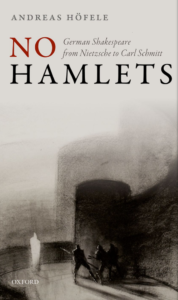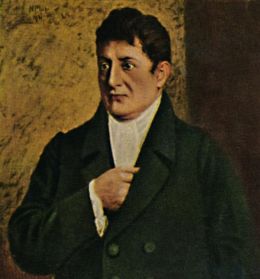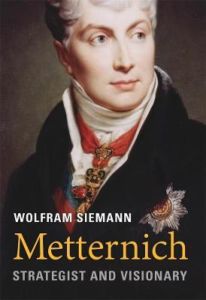Tag: German Nationalism
-
Part 1 of 2 (Part 2 here)
Andreas Höfele
No Hamlets: German Shakespeare from Nietzsche to Carl Schmitt
Oxford, UK: Oxford University Press, 2016The hardest book reviews to write are those that deal with material that I have enjoyed, but cannot recommend. This is the case for Andreas Höfele’s No Hamlets: German Shakespeare from Nietzsche to Carl Schmitt. Höfele teaches English literature at Munich University, and he has written other books and articles on Elizabethan and Victorian stagecraft, as well as six novels. (more…)
-
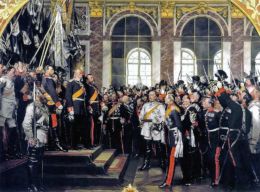
Anton von Werner, The Proclamation of the German Empire (1885). The rise of the German Empire coincided with the rise of German historicism. Both presented a new challenge to British and French world domination.
2,932 words
Part 5 of 7 (Part 1 here, Part 4 here)
German Historicism: The Defeated Alternative to Liberal Progressivism
Peter Watson’s comprehensive book of over 900 pages, The German Genius: Europe’s Third Renaissance, The Second Scientific Revolution, and the Twentieth Century (2010), demonstrates that from 1750 to the 1930s Germany was the dominant intellectual force in Western civilization. (more…)
-
Part 3 of 3 (Part 1 here, Part 2 here)
1. Fichte on the Nature of the State
We began to explore Fichte’s political philosophy in the last installment, as expounded primarily in his 1796 work Foundations of Natural Right. It is a basic principle of Fichte’s philosophy that subjectivity, what he calls the “I,” must bring nature under the control of reason. (more…)
-
Wolfram Siemann
Metternich: Strategist and Visionary
Cambridge, Mass.: Harvard University Press, 2019Julius Evola called Klemens von Metternich the “last great European.” The Right-wing philosopher saw the Austrian statesman as his ideal leader instead of the fascist strongmen he saw in his own time. Statements like this have made the Right partial to Metternich, seeing him as a leader who tried to reverse the poison unleashed by the French Revolution. (more…)
-
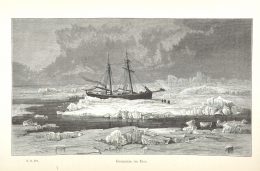
Illustration from the 1875 account of the expedition, Die zweite deutsche Nordpolarfahrt in den Jahren 1869 und 1870 unter Führung des Kapitän Koldewey.
1,973 words
Germany undertook two Arctic expeditions from 1868 to 1870. The prospects of heroic adventure, national glory, and scientific advancement were all motivating factors. Polar exploration was hailed as a demonstration of Germanic courage and fortitude, as well as of the strength of German science and technology. (more…)
-
The discipline of gymnastics has its roots in ancient Greek physical exercises, but the father of modern gymnastics is widely acknowledged to be the nineteenth-century German gymnastics educator Friedrich Ludwig Jahn. Jahn is credited with the invention of number of gymnastic apparatuses (the vaulting horse, parallel bars, balance beam, and rings), the founding of the first open-air gymnasium in Germany, and the popularization of gymnastics as a competitive sport. (more…)
-
3,213 words
Today marks the fifth centenary of the Protestant Reformation. In Germany, October 31 is an annual public holiday in five states, but this year a nationwide holiday has been declared in all states to celebrate the Reformation. A search for books about Martin Luther and the Reformation on Amazon shows that a vast number of books about him have been published in recent months. It seems right to commemorate this pivotal event in the history of Germany and all of Europe, and the man responsible for it. (more…)
-
Part 2 of 2. Part 1 here.
Schleiermacher’s Philosophy of Mind
According to Schleiermacher, the task of philosophy is the “immersion of the Spirit into the innermost depths of itself and of things in order to fathom the relations of their [spirit and nature] being-together.”[1] Schleiermacher’s philosophy, like German idealism in general, was very influenced by, and a reaction to, the critical transcendental philosophy of Immanuel Kant. (more…)
-
-
Part 2
Racial Pioneers: Aryan Mystics, Pan-Germans, & Eugenicists
The Slavization of Austrian mass politics and the Judaization of its elites naturally invited a backlash from the state’s founding population, the Germans. This took various forms, especially the Right-wing ethno-nationalist subculture of the pan-Germans and the more pragmatic, anti-Semitic populism of the Christian-Socials. (more…)
-
3,908 words
Johann Gottlieb Fichte was one of those rare men who are both thinkers and heroes. His challenging Wissenschaftslehre (“doctrine of science”) remains one of the most ambitious attempts to encompass the world and its meaning in a speculative philosophical system. In his elaboration of Immanuel Kant’s philosophy of ethical idealism, Fichte achieved a compelling synthesis of the complementary values of freedom and duty. (more…)
-
Editor’s Note:
We apologize for the audio quality of Dr. Jacob’s telephone connection which makes it hard to understand his accent. But bear with us, because this is a very interesting interview.
[jwplayer file=”https://counter-currents.com/radio/CCR-The_Stark_Truth-20120716-Alexander_Jacob.mp3″ streamer=”rtmp://s3cxt7hxkp9tvh.cloudfront.net/cfx/st” provider=”rtmp” duration=”3131″]

